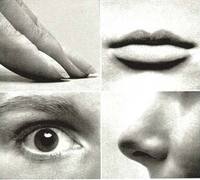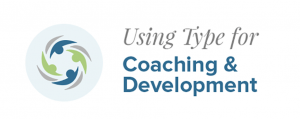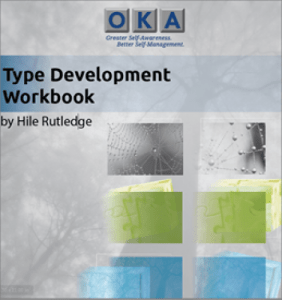What is Type Development?
Jung said that Sensing tells us that something IS, Thinking tells us WHAT it is, Feeling gives it value, and iNtuition gives it meaning.
So much surrounding Type emphasizes the preference for one end of a dichotomy over its opposite, but Type theory is actually a holistic theory of human cognitive development that illuminates the path we each most likely follow as we experience, develop, and ultimately build toward comfort and skill with all four mental functions (S, N, T and F) at the core of Type theory. Type suggests that our preferences are hard-wired and unchanging, but our Type development—the degree to which we can access and the skill with which we use all parts of ourselves—is continually changing, and hopefully increasing.
Usually an individual or organization’s Type development—good or bad—leads to predictable outcomes and observable behaviors that can signify likely successes and challenges. It is important to note the positive—indeed essential—qualities for effective individual and organizational life that each mental function provides. The underdevelopment of a function can block us from seeing the value or even the existence of that function. A great first step in any Type development effort is to establish the existence and the value of each of the functions and their respective, unique contributions.

What are the possibilities of Sensing?
The Sensing function helps us face the facts and be realistic. It tells us exactly what the situation is and what is being done about it. Sensing works against wishful thinking or sentiment that may obscure what is. It can tell us what is happening right now or what has happened in the past. Sensing is concrete, realistic, practical, and experiential.
Individuals with well-developed Sensing tend to be:
- Attentive to and energized by sensate, immediate experience
- History aware, data-rich, and informed
- Curious about what has happened and what is going on now
- Practical and realistic
- Detailed, literal and specific when they speak
Organizations with well-developed Sensing tend to have:
- Realistic, practical, and historically informed policies and procedures
- A steadying sense of tradition (if introverted Sensing)
- An attentive and adaptable practical engagement to streaming problems and ever-changing client or project demands (if extraverted Sensing)
- A concern for tactics and process (the how’s of a project or effort)
- Vision and strategy—assuming they have them at all—kept within the boundaries of reality and an implementable check-list
Individuals with under-developed Sensing tend to be:
- Unobservant
- Generally ignorant of detail, specifics, and chronology
- Uncomfortable with real world, sensual experience
- Unrealistic and impractical
- Disconnected from their physical bodies and the realities of pain, discomfort, hunger, et cetera—unnecessarily diminishing or overplaying these events
Organizations with under-developed Sensing tend to have:
- Decisions and policies ignorant—or even disdainful—of history and past experience
- General inattention to detail
- A lack of care/concern for the specifics of deals, agreements, and contracts
- Unrealistic or impractical goals and strategies
- An inability to shift from high level strategy and vision to tactical action
Next Steps:
Long a thought and training leader in Type Development, OKA offers two compelling and completely different training approaches to anyone interested in better understanding and more powerfully using Type.
 Pearman Certification introduces participants to the newest and sharpest Type tool, the Pearman Personality Integrator. This two-day class is offered in-person and online and empowers its participants to use this great new tool to support and drive focused Type Development.
Pearman Certification introduces participants to the newest and sharpest Type tool, the Pearman Personality Integrator. This two-day class is offered in-person and online and empowers its participants to use this great new tool to support and drive focused Type Development.
 Using Type for Coaching and Development is a rich and sophisticated deep dive into Type Theory, the MBTI and Type Development. In this interactive, two-day class, participants come to understand and learn how to teach and apply Type Dynamics (dominant, auxiliary, tertiary and inferior functions), balance and Type Development–even getting to practice accessing and using each of the four mental functions.
Using Type for Coaching and Development is a rich and sophisticated deep dive into Type Theory, the MBTI and Type Development. In this interactive, two-day class, participants come to understand and learn how to teach and apply Type Dynamics (dominant, auxiliary, tertiary and inferior functions), balance and Type Development–even getting to practice accessing and using each of the four mental functions.
OKA also publishes the Type Development Workbook, by Hile Rutledge to support the deep dive into Type Dynamics and Type Development.
Consider these other OKA Type Development blog titles
- OKA’s Type Development Series–#1: The Value of Thinking
- OKA’s Type Development Series–Developing T
- OKA’s Type Development Series–#2: The Logic of Feeling
- OKA’s Type Development Series–Developing Feeling
- OKA’s Type Development Series–Developing S
- OKA’s Type Development Series–#4: The Details of iNtuition
- OKA’s Type Development Series–Developing N


Leave a Comment